How a small rural town that ousted Britain’s Conservatives is emblematic of the nation’s democratic upheaval

- by Admin
- July 5, 2024
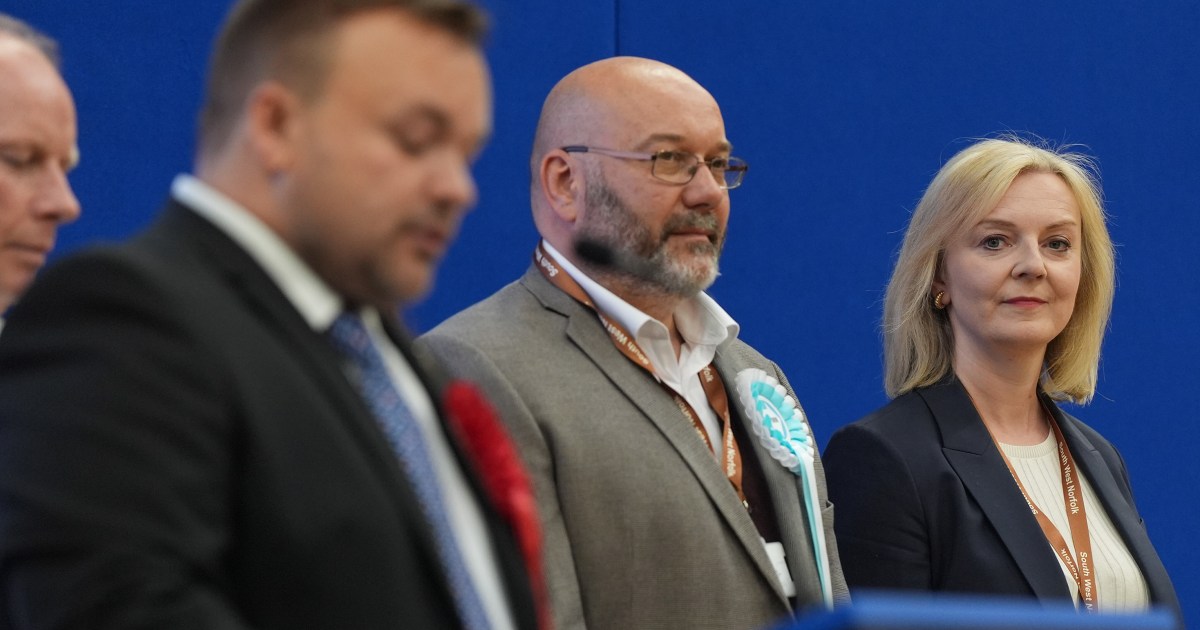
THETFORD, England — With its historic, flint-clad houses and pleasant fields, Thetford is an unlikely scene for an electoral bloodbath. But early Friday voters here unexpectedly toppled former Prime Minister Liz Truss from her seat in Parliament, felling the biggest beast of the most disastrous election in the Conservative Party’s 190-year history.
This quaint market town in the sprawling lowlands of eastern England should be a rural, right-wing heartland. This time, however, it voted for the opposition Labour Party for the first time since the 1950s, helping catapult Prime Minister Keir Starmer, a self-described socialist, into No. 10 Downing St.
Many here said they had little enthusiasm for Labour, echoing national polls. Rather they voted to punish the Conservatives — a guttural expression of democratic anger after 14 years of scandals and failed policies that have left the world’s sixth-largest economy stagnant and decrepit.
“People will be pleased to see the back of Truss,” postman Mick Callaghan, 61, told NBC News as he did his rounds. “This town has gone to pot, with the mortgages going up and the general mess the Conservatives have made.”
Nearby, Glenis Stevenson, a retired housekeeper, debated the night’s drama with a group of friends outside Thetford’s local Baptist church.
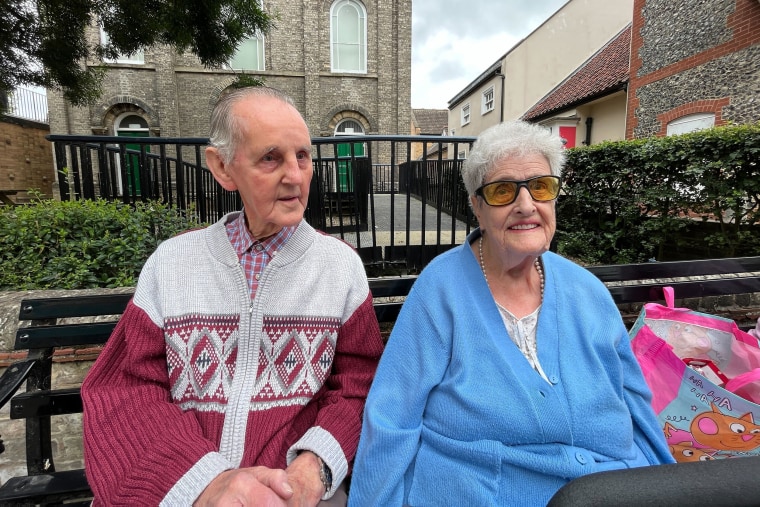
“We used to always vote Conservative, but not this time,” the 90-year-old said. “They don’t bother to help people like us; they only care about the rich, not working-class people.”
The narrative in Thetford is Britain in microcosm.
Thursday’s election saw Labour win 412 seats — nearly a record haul — to the Conservatives’ 121 — the lowest since its founding in the 1830s. It was a remarkable shift from 2019, when Labour’s defeat was so comprehensive that pundits predicted it would take years or decades to recover.
That was not the case, such is the dizzying volatility of modern British politics. In both elections, places once considered “safe” seats for both parties have seen their supposed tribal alliances turned upside down, and then in some cases flipped back again.
Truss stands accused of playing a major role in the Conservatives’ deep malaise.
While she won a 26,000-vote majority at the 2019 election, and had not been expected to come under serious pressure this time around, she lost her seat to the Labour candidate, Terry Jermy, by 640 votes.
Part of that likely owed to her ignominious reputation following her brief and haphazard stint as prime minister in 2022.
Truss lasted just 49 days in office, taking Britain’s top job following the resignation of her predecessor, Boris Johnson, after months of rolling scandal.
She had by far the shortest tenure of any prime minister in history, jettisoned by her own lawmakers after announcing unfunded tax cuts that spooked markets and triggered a financial catastrophe that spiked people’s mortgage rates.
This had a direct impact on people like Lucy Howe, 26, who said her monthly payments have gone up by 500 pounds ($640) a month, crushing for a preschool worker on maternity leave.
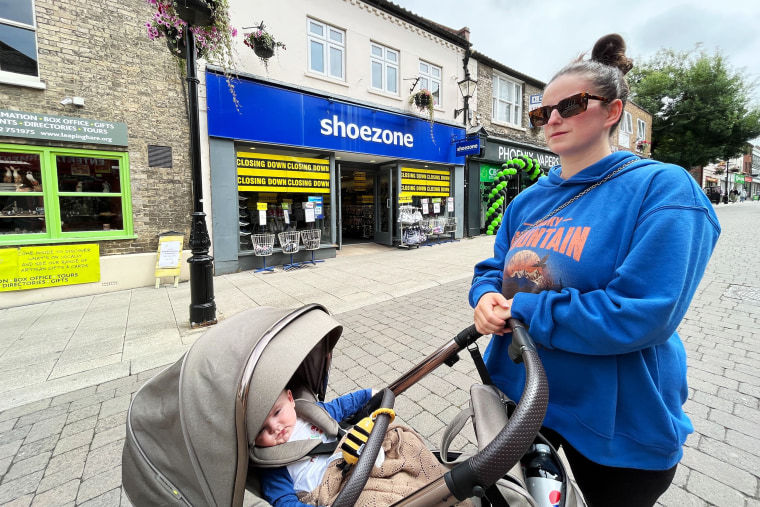
“I haven’t ever voted before, but I voted Labour this time,” she said, pushing her 4-month-old baby, Louis, in a stroller along Thetford’s main street. “I’m not somebody who’s really into politics,” she added, but “we haven’t had a great few years and it was time for a change-up.”
Brexit looms over all of this, with most economists saying it continues to hamper the U.K.’s efforts to recover from its financial stagnation. Paradoxically, the 2016 decision to leave the European Union was barely mentioned during this campaign, with most parties cautious to reopen a messy chapter in Britain’s history that most here now say was a mistake.
Although Labour has a huge majority in the House of Commons, the lower house of the U.K. Parliament, Labour knows the roles could be reversed next time around. It didn’t win this election by drumming up millions more votes; in fact, its vote share actually dropped from 2019.
What changed was an unprecedented collapse in Conservative support.
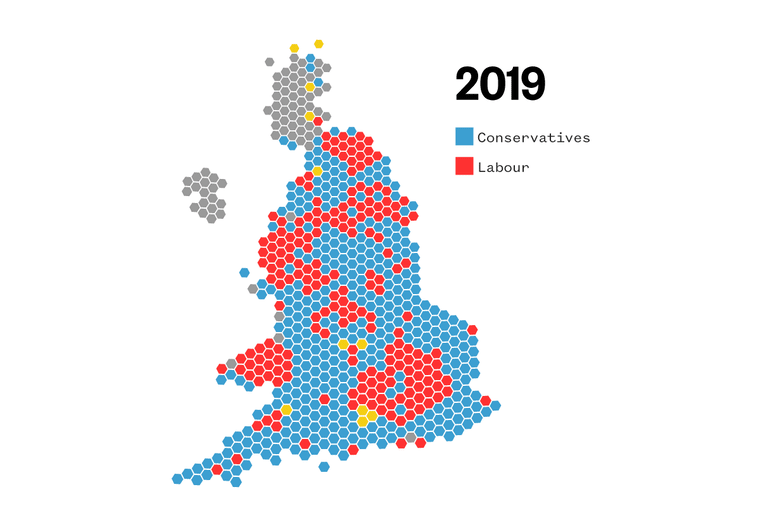
Some went to the centrist Liberal Democrats. Most went to Reform U.K., the populist anti-immigration party headed by the insurgent Donald Trump ally Nigel Farage. Reform was only founded four years ago and only won five seats despite its impressive 4 million votes.
Nonetheless, Farage is eyeing this year as a springboard into the next elections in 2029.
“Reform is certainly going to be in power at some point,” said James Lumley, 61, a farmer who voted for the hard-right upstarts after a lifetime backing the Conservatives.
He was talking politics on a bench outside a local pub, proudly dressed in a Union Flag T-shirt, camouflage trousers and a tan corduroy sports jacket. He said that mainstream politicians “have treated us like mushrooms: kept us in the dark and fed us on pig swill.”
“I’d rather have Conservatives than Labour, but the Conservatives are still as much use as a chocolate fire guard,” he said. With relish, the self-described eccentric who said he left his British-flag pants at home added: “The Conservatives are finished.”
It’s quite a statement in South West Norfolk, the parliamentary constituency in which Thetford sits. Conservatives have dominated in the region since the 1880s. And Liz Truss has been local lawmaker since 2010, sitting on a colossal, seemingly unassailable majority.
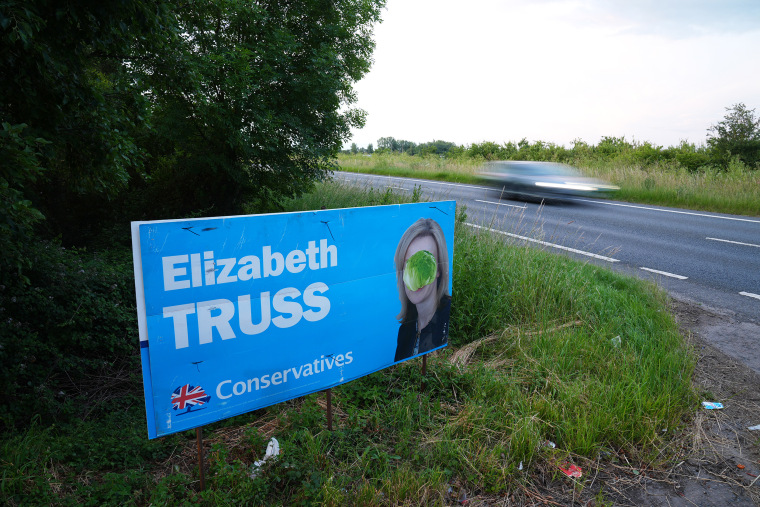
The town’s architecture and winding alleyways might seem like a museum to a visitor, with some buildings dating to the 1400s. The town evokes a bygone, perhaps part-imaginary England, one portrayed in the 1970s sitcom “Dad’s Army” about homefront soldiers in World War II, which was filmed nearby.
Thetford was also the birthplace of American founding father Thomas Paine in 1737, and his gold statue surveys the town square.
In a story familiar to countless other towns, some of Thetford’s “olde worlde” buildings have been taken over by low-rent stores with names like TIME2VAPE. Others are vacant altogether, casualties of the high taxes on local businesses and online shopping that’s smashed main-street retail nationwide.
While Labour won the seat, Reform candidate Toby McKenzie was close behind with just under 10,000 votes, almost as many as the former prime minister, splitting the right wing and handing Labour victory.
Brexit’s specter is felt not just in economics but immigration, which has continued to rise despite promises by advocates that Brexit would see it fall.
“Everything we have worked for, and our fathers fought for in the war, is now being taken over by foreigners,” said Shirley Johnson, 78, a retired chef dressed in the style of Betty Boop and sitting on her mobility scooter.

She said she wasn’t racist. Her late husband was a Black American from Houston, Texas, and the couple has five children. “I’m not blaming the people: If I was in a war zone and had three kids, of course I would try to come here,” she said. “It’s the government’s fault.”
This tension is visible in the slew of Eastern European food stores that now dot the town’s thoroughfare. The Lithuanians, Bulgarians and Romanians say they don’t get too much hassle.
“In any case, if they send us back home, I wouldn’t care,” said Ineta Omel, 23, who moved here with her family from Lithuania at age 14 and now works as a receptionist. “I would!” snaps back her sister, Kamile, 21, sitting next to her on a bench under the bows of a tall tree. “I’ve built my life here.”
They both laugh.
These high-street debates aside, just as important to the narrative are the people who refused to participate at all. Trust in politics, media and other institutions is at a record low. And provisional turnout estimates were just 60%, at least the lowest for 20 years.
“All of these politicians are full of s—,” said Bob, 68, a retired plasterer who declined to give his last name. “You just can’t trust any of them.”
The Latest News
-
December 22, 2024Donald Trump picks Apprentice producer to be the US special envoy to UK
-
December 22, 2024Daily horoscope: December 22, 2024 astrological predictions for your star sign
-
December 21, 2024UK flights and ferries cancelled owing to high winds as Christmas getaway begins
-
December 21, 2024Prince Andrew plans to move to UAE amid espionage allegations: Report
-
December 21, 2024Inside Britain’s saddest shopping centre: Town centre mall empty just DAYS before Christmas as depressed locals say ‘it’s a disgrace’





